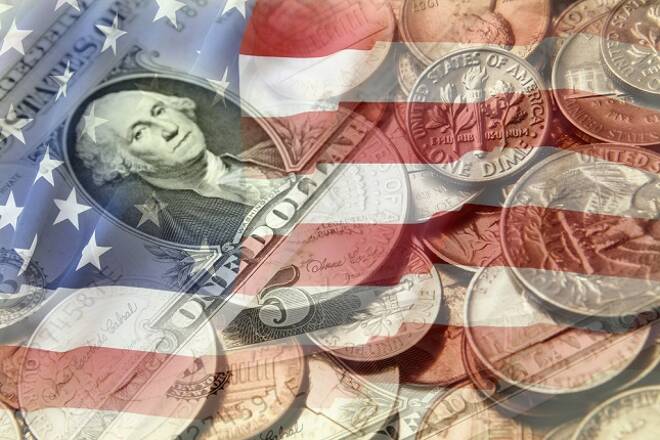Advertisement
Advertisement
Trump, Fed Have to Share Blame for Red Flags in U.S. Housing Sector
By:
While the world has been waiting for the tariffs to disrupt the global economy, the U.S. housing industry has been raising red flags which are real, not speculative numbers. And the news has not been covered nearly as much as the trade dispute between China and the United States. So while it may be easy to blame Trump’s policies for economic issues, at least in the case of a setback in the housing industry, the Fed also has to share in the blame. This could be a problem because if the Fed decides to skip a rate hike in September or December because of the housing sector’s poor performance, it will look like it has caved to the criticism from Trump.
While just about every economist, analyst and politician has been directing their anger at President Trump for imposing tariffs and warning about their potential negative impact on the U.S. economy later this year or early next year, the U.S. housing market has been showing signs of flaming out.
Like a slight of hand magician, the stock market has been saying, “Look over here”, while the housing market may be getting ready to pick our pockets.
Anger at Trump ranging from his tariffs to his comments about the Fed to his remarks about the strength of the dollar may be causing investors to brush aside key reports about U.S. housing that may cause the economy to falter early next year.
With everyone watching for Trump’s next move and its potential negative impact on the economy (if you believe the headlines), recent housing reports may already be signaling that the economy is not as strong as we think.
Based on the current performances in the stock and bond markets, I don’t believe we have yet seen the broad-based negative effects of the tariffs. There have been a handful of companies issuing guidance for future losses during this second-quarter earnings season – namely Harley Davidson, however, the negative guidance hasn’t been widespread.
The recent Fed Beige Book report, which came out last week, mentioned the words “tariff” or “tariffs”, 31 times. In the Beige Books over the preceding two decades, tariffs had been mentioned only 20 times.
Just last week, Federal Reserve Chairman Jerome Powell made brief mention of the ongoing trade war between the U.S. and its global competitors, saying only that it is “difficult to predict” what the ramifications will be on the economy.
However, Powell’s “upbeat tone” from the testimony likely means the trade issues won’t keep the Fed from hiking rates.
Nearly every complaint or comment about the tariffs have been textbook definitions of what tariffs can do to an economy and right now seem to be highly speculative since we haven’t seen the dire consequences yet. But, maybe we have.
U.S. Housing Sector
While the world has been waiting for the tariffs to disrupt the global economy, the U.S. housing industry has been raising red flags which are real, not speculative numbers. And the news has not been covered nearly as much as the trade dispute between China and the United States.
Late last week, Trump warned that the Fed may be killing the economy through its aggressive monetary policy. He was widely criticized for his remarks, but he may have a point given today’s reports of a crash in southern California home sales and weak new home sales.
However, if the housing market is starting to take a turn for the worst, then the Fed and Trump should share the blame. Trump’s tariffs have been driving up construction material costs, which builders say have significantly raised the cost of a new home.
If the cost of a new home continues to rise along with mortgage rates, which essentially is being fueled by the Fed’s rate hikes then this is going to put a choke on demand.
So while it may be easy to blame Trump’s policies for economic issues, at least in the case of a setback in the housing industry, the Fed also has to share in the blame. This could be a problem because if the Fed decides to skip a rate hike in September or December because of the housing sector’s poor performance, it will look like it has caved to the criticism from Trump.
We could be in for a vicious housing market if Trump stands his ground on tariffs and the Fed remains firm on its plan to raise rates.
About the Author
James Hyerczykauthor
James Hyerczyk is a U.S. based seasoned technical analyst and educator with over 40 years of experience in market analysis and trading, specializing in chart patterns and price movement. He is the author of two books on technical analysis and has a background in both futures and stock markets.
Advertisement
